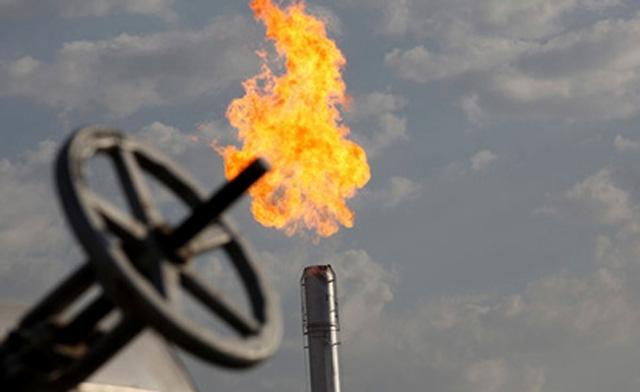
BACK TO RUSSIA

It was just like the old days before the European Union imposed sanctions on Russia in 2014. At the Eastern Economic Forum in Vladivostok on September 3–5, Gazprom clinched three major deals with some of Europe's biggest energy companies.
One of the most important was the revival of a lucrative asset swap between the Russian energy giant and Wintershall, the energy division of BASF, a German chemical company. BASF had abandoned that swap arrangement in December 2014 because of the geopolitical consequences of Russia's invasion of eastern Ukraine and its annexation of Crimea.
The asset swap and other deals signed in Vladivostok show how German as well as Austrian energy companies are loath to quit Russia. They also show how Gazprom wants to tie Europe's lucrative gas market more closely to Russia. In 2013, Russia supplied the EU's 28 countries with 30 percent of their gas needs.
But more importantly, the deals confirm how Russia is determined to end Ukraine's role as the major transit route for Russian gas to Europe. Half of the Russian gas imported by Europe crosses Ukraine.
Under the terms of the deal between BASF and Gazprom, BASF's subsidiary Wintershall will obtain a stake of 25 percent plus one share in the Urengoy natural gas fields in Siberia. Both firms will develop the fields.
In return, Wintershall will transfer to Gazprom its jointly owned gas storage and trading business in Germany as well as a stake in its business in Austria. Through the asset swap, Gazprom will also receive a 50 percent stake in Wintershall's exploration and production of oil and gas in the North Sea. These activities amounted to sales of over €12 billion in 2014, according to BASF.
The second deal agreed to in Vladivostok involves Gazprom and a European consortium building a second Nord Stream pipeline under the Baltic Sea. This will enable Russia to send more of its gas directly to Germany, bypassing Ukraine.
The consortium consists of BASF, German energy company E.ON, French electricity company Engie, Austrian oil and gas firm OMV, and Royal Dutch Shell. Gazprom will own a 51 percent share of a new company called New European Pipeline AG, which will develop the project. The other partners will have a 10 percent stake, except for Engie, which will own 9 percent.
"The fact that the global energy majors participate in the project bespeaks its significance for securing reliable gas supply to European consumers," stated Alexey Miller, chairman of the Gazprom Management Committee.
Tell that to Poland and the Baltic states—and Ukraine. They had criticized the first Nord Stream pipeline, which was agreed to under the then German chancellor Gerhard Schröder in 2005. At the time, Warsaw argued that the deal increased Europe's dependence on Russian energy.
Since then, however, Europe has been diversifying its energy supplies, spurred by the 2009 Ukraine gas crisis, which disrupted supplies to Europe because of a dispute between Russia and Ukraine over energy prices.
Also, through its Third Energy Package, the European Commission is introducing more competition in the energy sector by breaking the hold any one company can have over the production, distribution, and trading of gas. That is one of the main reasons why in December 2014 Russia pulled out of the South Stream project, which was to transport gas across the Black Sea to Southeastern Europe. Under the terms of the commission package, Russia would have had to open up the gas pipeline to competition.
The third deal reached in Vladivostok involves OMV's participation in the Urengoy oil and gas fields. When the deal is concluded, OMV will acquire a 24.8 percent stake in the project in exchange for Gazprom obtaining some of the assets of OMV.
"This agreement is another step towards cooperation along the entire value chain with Gazprom," said Rainer Seele, chief executive officer of OMV. "We are importing gas from Russia for our European customers. We are investing together into the security of supply realizing the Nord Stream 2 project and we are now extending our trustful partnership towards the production of natural gas in Siberia," he added.
Together, these deals mean that Europe's big energy companies want to return to business as usual with Russia, despite the continuing conflict in Ukraine and the EU's continuing sanctions on Russia.
But Russia too has its reasons for forging ahead with such deals. It needs the technology. It needs Europe's reliable markets. And does it really want to depend on China for its gas exports and its trade?
So even though Europe is diversifying its energy sources and the European Commission is insisting that Gazprom play by the EU's competition rules, sanctions or not, Europe is too lucrative for Russia to ignore. So much for the nationalist rhetoric to the contrary from the Kremlin. And sanctions or not, Russia's underdeveloped gas fields are too lucrative for Europe's energy companies to ignore.
-----
More:





